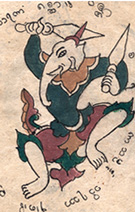|







|
Brief
History of Burma
continued
To most
observers' surprise, a free vote did take place on 27 May 1990. Of 485
parliamentary seats contested, the NLD won 392 (over 80%). Ethnic minority
parties opposed to the SLORC won 65 more seats. The army-front NUP won
only ten seats, a resounding rejection of military rule that demonstrated
not only the depth of the Burmese peoples' alienation from the military
regime, but also the failure of the generals to recognize their own unpopularity.
The junta's response to this overwhelming defeat was simply to change
the rules. It declared the election was not for a parliament, but for
some members of a constituent assembly to consider a new constitution.
Repression intensified. Many NLD elected representatives were arrested.
Some have died in prison. Others fled into exile. An elected opposition
member of parliament, Dr. Sein Win, is Prime Minister of the government-in-exile,
the National Coalition Government of the Union of Burma (NCGUB), which
is among the many pro-democracy Burmese groups working internationally
for change in Burma. In 1999-2000, the junta widened its campaign of intimidation
against the grass roots of the NLD, as well as its leadership. State media
reported almost daily the "resignations" of thousands of NLD
members around the country. Many NLD leaders were put under house arrest
or detained.
Today, the junta rules by decree. Any return to civilian rule will possibly
be under a new constitution. The NCGUB and the Democratic Alliance of
Burma (DAB), comprised of several ethnic groups and others who have been
fighting against the military regime, have jointly produced a draft democratic
constitution. A military-controlled "National Convention" has
been charged by the junta with promulgating a new national constitution.
The draft document, which enshrines military dominance of any future government
and marginalizes Burma's ethnic minorities, has already been rejected
by the democratic opposition. The NLD withdrew from the National Convention
in November 1995, and the charter drafting process has remained stalled
since. There are indications that the military regime is laying the ground
for a return to some form of elections. One sign is the increasing prominence
of the army-backed Union Solidarity and Development Association (USDA),
a nominally non-partisan civic mass organization created by the SLORC
in 1993. The USDA may be converted to a front political party for the
military if the generals finally seek to put a civilian face on their
rule.
After six years of house arrest, during which she was awarded the Nobel
Peace Prize, Aung San Suu Kyi was released in July 1995. Early in
2001, she is again under de facto house arrest after repeatedly being
blocked from visiting NLD supporters outside Rangoon. She continues to
defy military intimidation and military decrees by speaking out against
the dictatorship. In late 2000, junta generals and NLD leaders began the
first substantive discussions in over a decade. While welcomed by all
sides, their progress is uncertain. Burma's struggle for democracy, sadly,
is far from over.
------------------------------------------------------------------------
Thomas
R. Lansner is an adjunct professor at Columbia University’s
School of International and Public Affairs, where he served as assistant
dean from May 1999-August 2001. For ten years until 1990, he was a correspondent
in Africa and Asia for the London Observer, the Guardian, Far Eastern
Economic Review and other publications. Based from Uganda, India, and
then the Philippines, he covered political, economic and social developments,
as well as wars and civil conflicts, in many countries in Africa and the
Asia-Pacific. He has visited Burma several times as a correspondent and
advisor.
FOR FURTHER INFORMATION:
Burma
Project, Open Society Institute
400 West 59th Street, 4th floor
New York, NY 10019 USA
tel: (212) 548-0632 fax: (212) 548-4655
|

